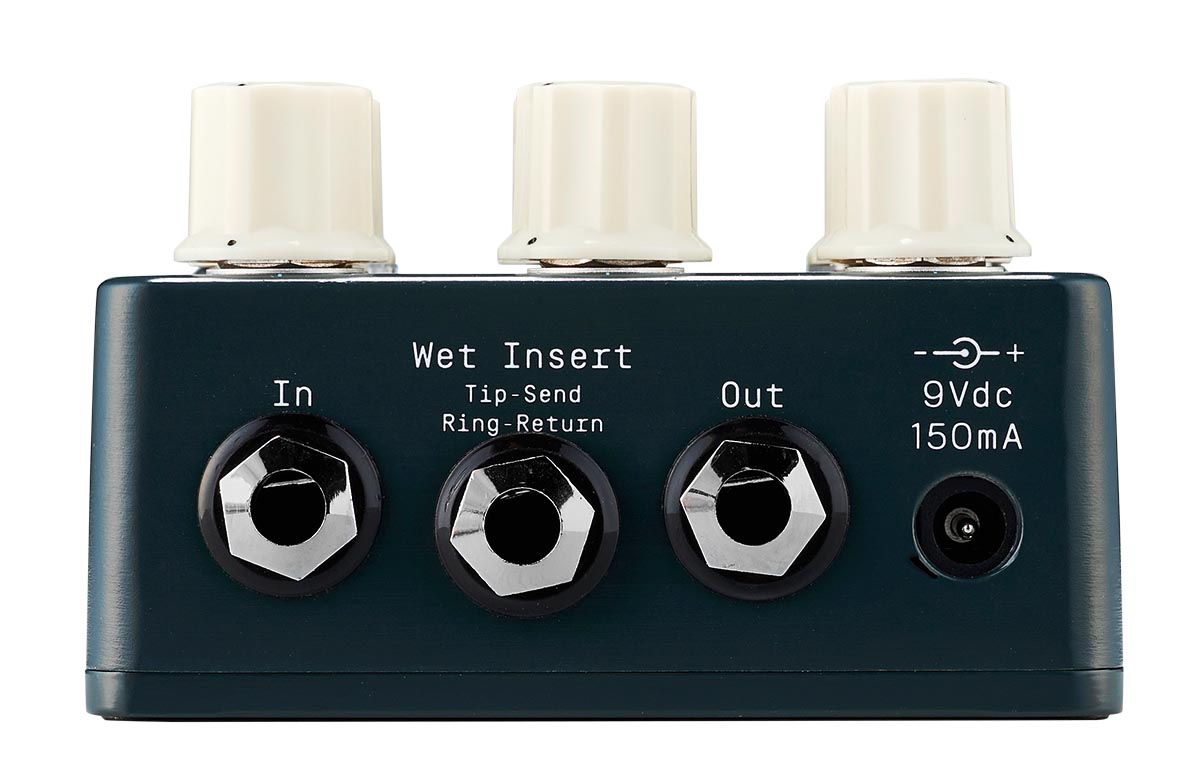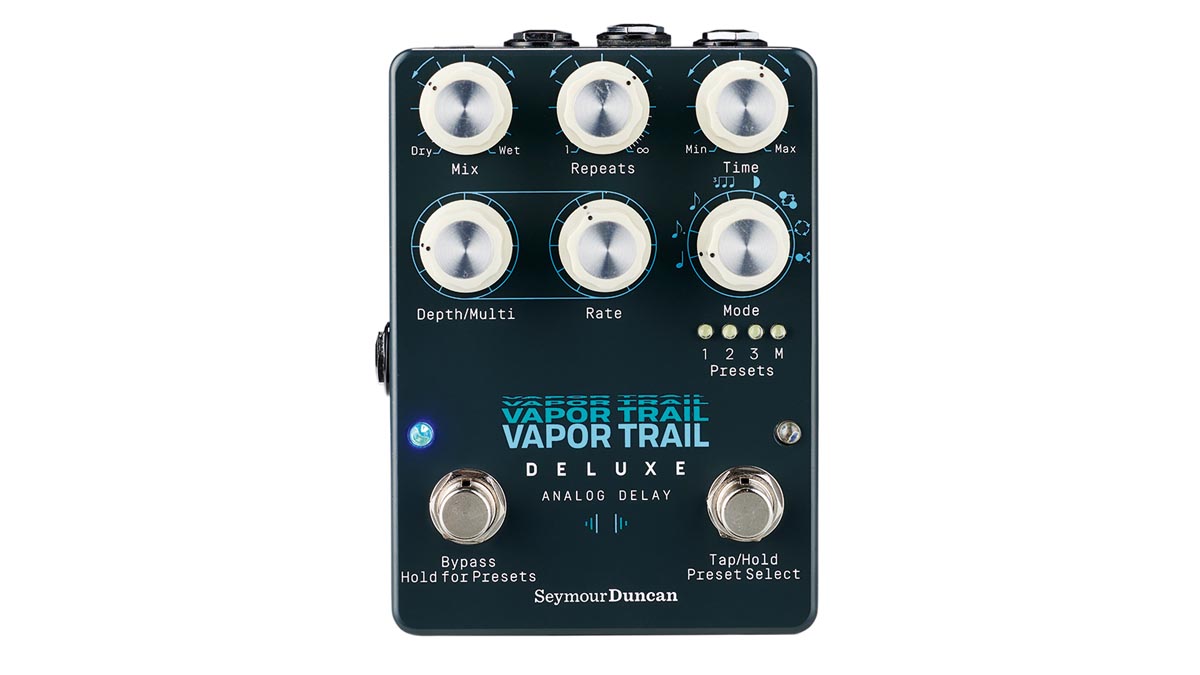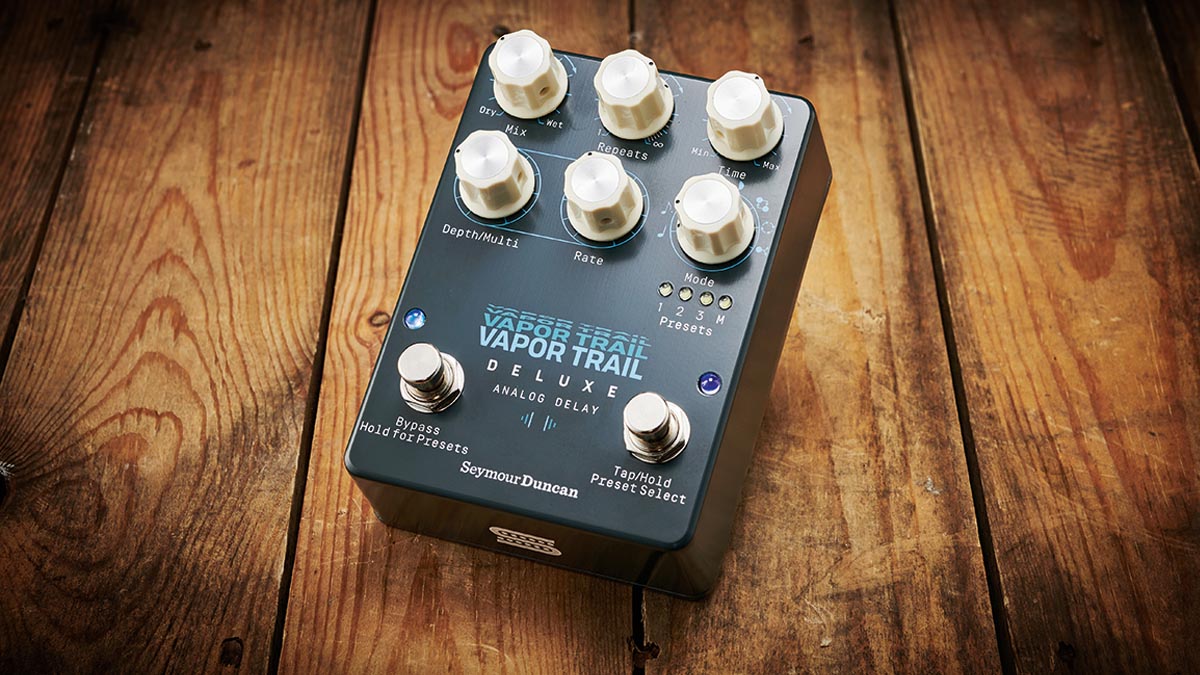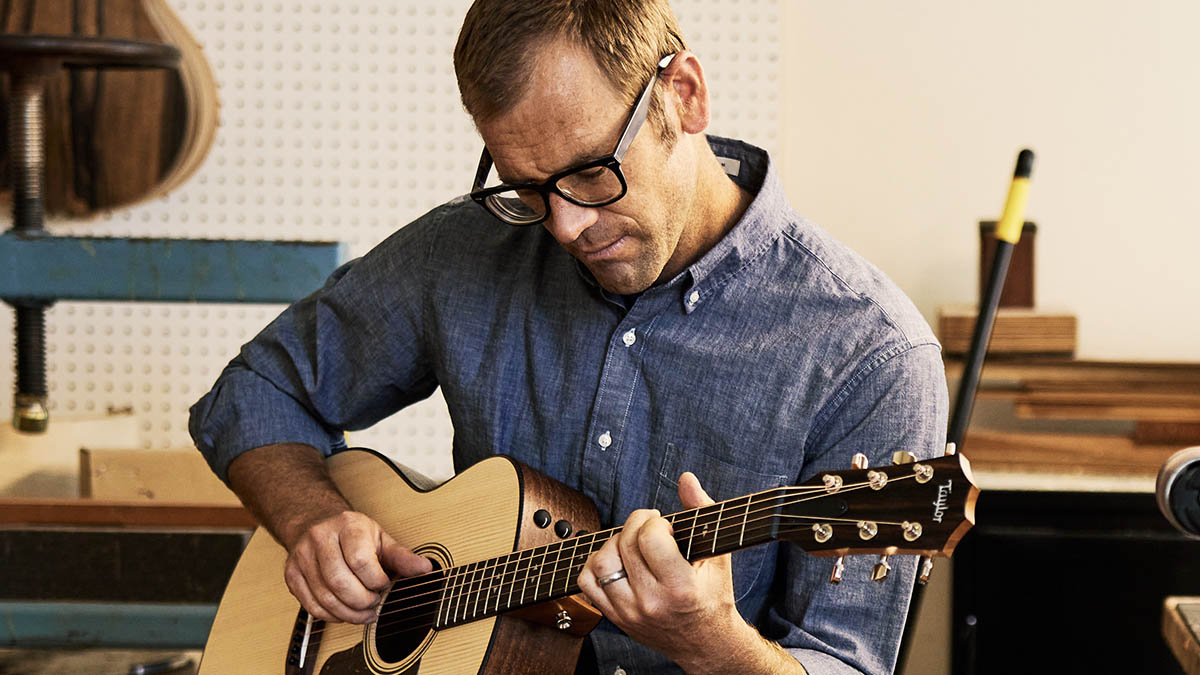Guitar World Verdict
If you like the sound of analog delay, this pedal is an extremely practical iteration with a full set of features for traditionalists, plus extras for those who might like to add something a little more ‘out there’ to their performance.
Pros
- +
Analog BBD delay sound.
- +
Tap tempo.
- +
1,200ms of delay time.
- +
Micro Delay mode.
- +
Insert point.
- +
Onboard presets.
- +
Expression pedal control.
Cons
- -
Selecting the eight different pitch sequence patterns can be a bit of a faff.
You can trust Guitar World
It’s been seven years since we took a look at Seymour Duncan’s original Vapor Trail pedal – a compact pedalboard-friendly analog delay pedal with modulation and up to 600ms of delay time.
The company has now given it the Deluxe treatment, creating an altogether bigger twin-footswitch pedal with double the delay time and a host of extra features, notably tap tempo, presets and expression pedal control.
The Vapor Trail Deluxe is a digitally controlled analog delay pedal that uses four BBD chips to give a maximum delay time of 1,200ms. It has the standard set of delay knobs of Mix, Repeats and Time, but you can also set the delay time via a tap tempo footswitch that can be linked to four different tap divisions – the standard quarter note, a dotted eighth note, eighth note or an eighth-note triplet.
These timing divisions are selected using an eight-position Mode switch that also calls up four speciality delay modes: micro delay, pitch sequence, runaway and pitch bender. Modulation can be added to the repeats via Rate and Depth knobs, and the pedal supports three presets that are easily called up by a combination of footswitch presses.

You can plug an expression pedal in to control the parameters of a single knob (Mix, Repeats, Time, Depth/Multi, Rate) and there’s also another socket that utilises a TRS jack for a range of functions.
This can operate as an external effects loop so you can plug in an external pedal or a combination of pedals to change the sound of the repeats – say, an overdrive pedal to add a bit more crunch to them.
You could also use a volume pedal here for direct control over the repeats level. In addition, the socket can be used for wet-only output so you could set up stereo operation.
All the latest guitar news, interviews, lessons, reviews, deals and more, direct to your inbox!
Sounds
Operation as a standard delay pedal is pretty straightforward here. The repeats sound great, possessing a clarity that’s not too far removed from the dry sound but with that analog quality of melting away into the distance, so they sit well with your sound.
The tap tempo does its job with the subdivision options offering flexibility, while the modulation will give you a bit of tape-style wobble or add effects from a touch of chorus to extreme wayward pitch vibrato.
The generous 1,200ms of delay time covers a host of playing needs, but if you’re looking to use very short delays for doubling, slapback and so on, switching to one of the four Special modes, Micro Delay, offers more finesse in zeroing in on them as it offers delay times from 6ms to 300ms spread across the Time knob, rather than the usual range up to 1,200ms.

What’s more, there’s a whole world of sounds to be explored around the knob’s lower reaches where you can create cool modulation such as chorus, flanging and rotary speaker effects as well as dialling in some metallic resonances.
The other three Special modes are of less conventional use but offer some live performance curveballs and creative options. Runaway simply ramps up the feedback for as long as you hold down the Tap/Hold footswitch, so you can build up a runaway oscillation and then cut it back to the actual position of the Repeats knob.
The time it takes to ramp up, however, is fixed, which makes it less flexible than it might have been. You may prefer to get more nuanced control by assigning the Repeats knob to an expression pedal or simply grabbing it and turning.
Pitch Bender lets you momentarily ramp the repeat’s pitch up or down an octave and back with control over the time it takes to reach the new pitch, while Pitch Sequence introduces upper and lower octaves to the wet signal in a fixed pattern and can sound like a synth’s sequencer in action or add an intriguing background ambient warble.
You get a choice of eight different patterns and the modulation knobs can be used to set the number of steps in the sequence and the length of each step – tap tempo is your friend here if you want to stick some into a band gig.
Specs
- PRICE: $229 / £299
- ORIGIN: USA
- TYPE: Analog delay pedal
- FEATURES: True hard-wire bypass with selectable active-bypass trailing repeats mode, 3 presets, 1200ms max. delay time,
- CONTROLS: Mix, Repeats, Time, Depth/Multi, Rate, Mode, Bypass footswitch, Tap/Hold footswitch
- CONNECTIONS: Standard input, standard output, Wet/Insert (TRS), expression pedal POWER: 9V-18V adaptor, 150mA minimum (Not supplied)
- DIMENSIONS: 90 (w) x 128 (d) x 55mm (h)
- CONTACT: Seymour Duncan
Trevor Curwen has played guitar for several decades – he's also mimed it on the UK's Top of the Pops. Much of his working life, though, has been spent behind the mixing desk, during which time he has built up a solid collection of the guitars, amps and pedals needed to cover just about any studio session. He writes pedal reviews for Guitarist and has contributed to Total Guitar, MusicRadar and Future Music among others.


